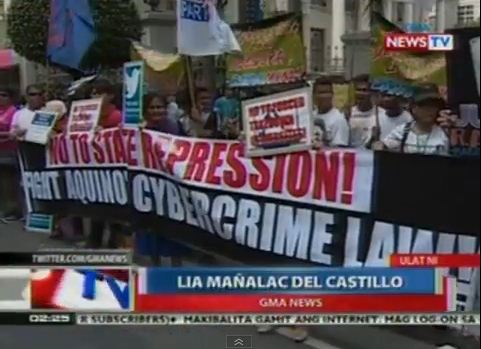Philippines extends suspension of cybercrime law

The Supreme Court of Philippines has extended the temporary restraining order (TRO) on the controversial Cybercrime Prevention Act of 2012 until further notice.
According to GMA News Online's report Tuesday, the decision to extend the 120-day TRO on the implementation of the law had been reached during the magistrates' meeting.
The Supreme Court's Public Information Office also said in a text message to reporters: "[The] TRO [on the] cybercrime case is extended until further orders from court." However, it is not known why or how long the suspension will be prolonged, the report noted.
Debate on law started
Earlier in January, the Court had heard the oral arguments of 15 petitioners against the law, as well as the Office of the Solicitor General in defense of the law.
The petitioners expressed fears the law would create a "chilling effect" on people's rights, and certain provisions of the law violated the rights to free speech, due process and equal protection of the law. While they saw the need for the cybercrime law, they reiterated the current law is too vague and overarching.
In defence, Solicitor General Francis Jardeleza admitted Section 19 of the Act, which empowers the Department of Justice to block computer data, should be taken down. But this alone was not enough reason to void the entire legislation, he said.

The Cybercrime Act of 2012, passed by Philippines' president Benigno Aquino III in September last year, had come under fire for its vague definition of online libel, violation of personal rights and tough legal penalties for Internet defamation.
The Supreme Court then suspended the Cybercrime Prevention Act for 120 days while it deliberates if the legislation violates civil rights. The Philippine government later asked the Court to lift the TRO and dismiss the 15 petitions contesting the Act because they did not show strong enough evidence, and argued the law does not infringe on people's privacy.